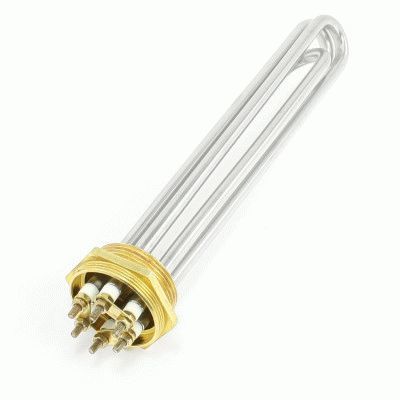The use of autonomous water heating systems is spreading not only among owners of private houses, but also among residents of apartment buildings. If for some this is the only way to increase the comfort of living in the absence of a central water supply (hot, cold), then installation of autonomous systems due to interruptions in the supply of water and inconsistency of the temperature regime with the established ones regulations.
The main selection criteria for heating devices are:
- performance (power);
- profitability;
- conditions and features of equipment installation;
- cost.
All these features directly depend on the type of energy carrier used, which mainly uses gas and electricity. Modern gas water heaters and electric heaters are able to fully satisfy the need for hot water. Each type of heater has its own advantages and disadvantages.
What is a gas water heater
The content of the article
-
What is a gas water heater
- Geyser Benefits
- disadvantages
-
Electric water heater
- Benefits
- disadvantages
- Conclusion
A gas column is a type of device in which heating occurs under the influence of a gas burner flame. There are two types of equipment for heating water. Cumulative (boiler) and flow. The most widely used flow-through devices.

Geyser Benefits
The main advantage is the cost-effectiveness of the equipment at a sufficiently high productivity. Additional positive qualities include the following characteristics:
- Small dimensions;
- The ability to use hot water at any time during the entire period of operation;
- The presence of instrumentation and an electronic control system allows adjust the combustion process depending on the existing water pressure in the system and at the outlet selection points.
Using a boiler allows you to have a large amount of water at hand at one time, but it will take a certain amount of time to heat it.
The choice of equipment should be made based on the estimated water flow and installation of a hot water supply system. If there are several sampling points (taps, mixers), equipment of higher power should be selected. The calculation of the required power can be done by a specialist.
disadvantages
The disadvantages of gas-fired heating devices are the need to develop design documentation, approval by regulatory authorities, and the complexity of installation. Installation is not economically feasible in the absence of a centralized gas supply. Using liquefied (balloon) gas will cost too much.
Electric water heater
In electrical appliances, a heating element is used as an element for heating water. According to the type of design, they are also divided into storage and flow. But the latter require the use of heating elements of increased power, which creates an additional load on the wiring and increased energy consumption.

Therefore, the most commonly used system is the boiler (accumulative) type. This option can be used for simultaneous heating of a large amount of water, depending on the capacity of the tank used, and as a combined system.
In this case, after heating to a certain temperature, water can flow to the sampling points. The automation used in these devices controls the flow and supply, enables and disables the heating elements, depending on the set operating modes.
Benefits
The main advantage of electric heaters is the lack of need for additional approval for installation.The installation and connection process is easier compared to gas equipment.
A comprehensive solution for simultaneous heating and water supply allows the simultaneous use of several taps or mixers for selection. Reliability and safety during operation is another plus in favor of these devices.
disadvantages
The main disadvantage is the high power consumption. Modern electric heaters, due to the installed electronic equipment, are designed to work in standby mode. The inclusion is made depending on the modes of use and the amount of water consumption. In most cases, they are always on.
The disadvantages include the possibility of failure of the heating elements due to the deposition of scale due to poor-quality water. But modern heating elements have a ceramic shell that impedes the process of scale deposition. They are more expensive, but their lifetime justifies their cost.
Conclusion
The conclusion from the foregoing is that the choice of a water heater should be made based on the operating conditions of the device itself. More economical gas equipment is not always able to provide sufficient heating of water at high flow rates.
The installation cost is higher than that of electric heaters. In turn, electrical devices require high-quality wiring and with constant operation, financial costs can be quite significant. The choice always remains with the consumer.


